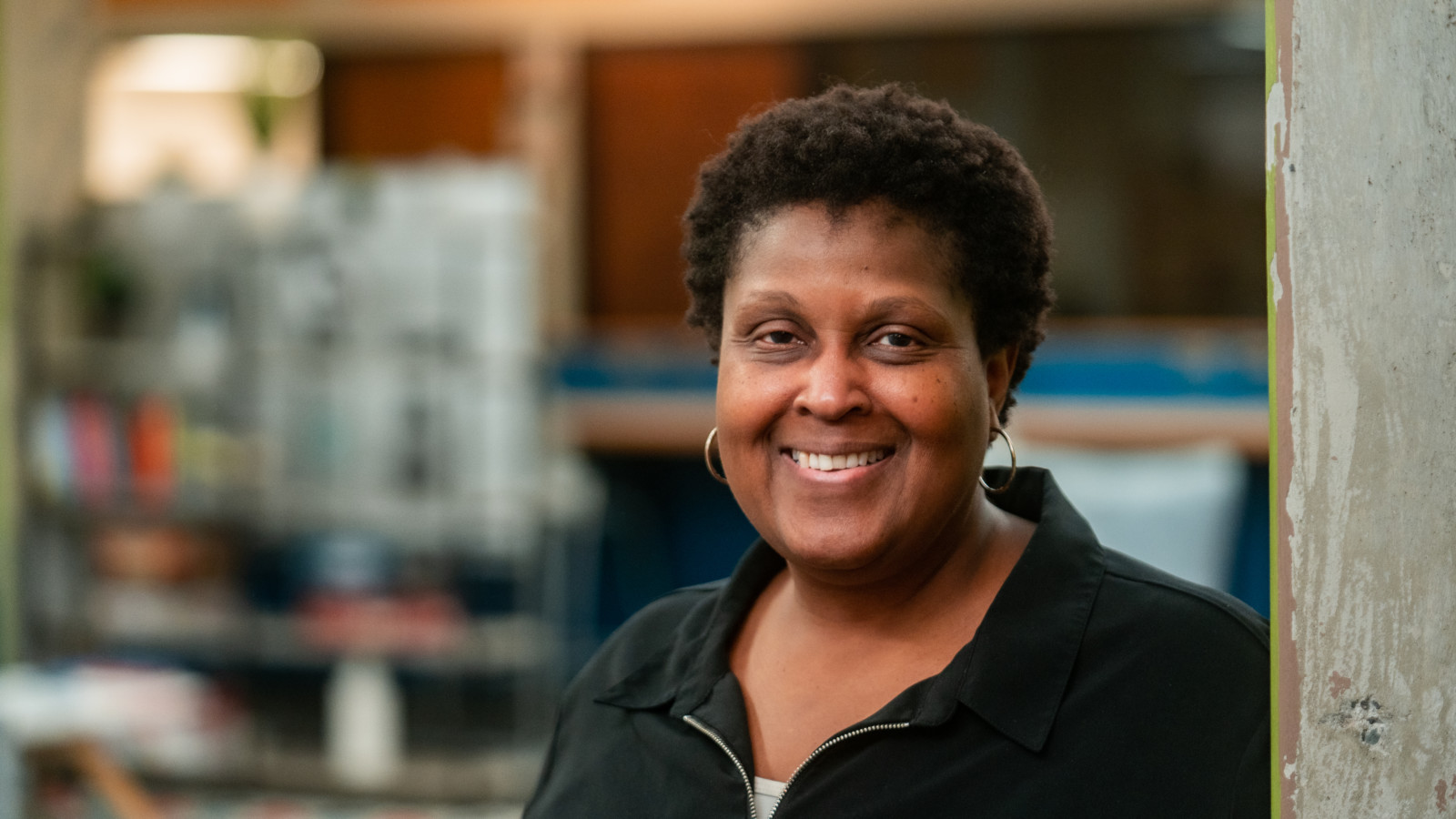Sonja Ebron is on a mission to deliver equal access to justice for everyone. She is a co-founder of Courtroom5, an AI-powered toolbox and community that empowers people to manage their civil court cases without a lawyer. Sonja is a Ph.D. electrical engineer who studied AI applications to the electric grid before launching her first company. She lives in Durham, North Carolina, with her wife and Courtroom5’s co-founder, Debra Slone.
What is your business, and what do you do?
I’m the founding CEO of Courtroom5, which aims to disrupt the consumer law business model to deliver access to justice for everyone. Courtroom5 increases equity in the justice system by empowering the 30 million people who end up in court and can’t afford a lawyer. Utilizing artificial intelligence, we offer an automated legal toolbox for managing a civil case, including document assembly, legal research, and claims analysis. We also provide practical training on various litigation topics. We operate a nationwide community of self-represented litigants who share their experiences and encourage others.
What sparked your vision to launch your business?
Before Courtroom5, I was the founder and CEO of blackEnergy. It’s a national distributor of energy conservation products and an organizer of energy buying groups that helped people use their utility bills to support Black communities. Debra and I chose to start Courtroom5 after having to represent ourselves in civil cases. We learned the hard way the importance of building a litigation strategy, staying organized, doing legal research, and learning whatever was necessary to win. Our personal experiences sparked our vision. Still, customer feedback helped us develop a solution that could reach a mass market.
What has been your favorite failure, and what did you learn?
I’d been hired to grow a lagging department but soon discovered forces within the organization that wanted the department killed off. Some were in my chain of command. Others controlled members of my chain of command. But I’d committed, and I tend to see commitments through. Over the next two years, I made powerful enemies and recruited powerful friends. Most of the enemies were either sidelined or forced to leave the organization, and I began to taste victory. When the most powerful of those enemies sued for peace, I foolishly rejected the offer and forced her departure. The powerful friendships I’d cultivated then dismissed me. I was denied the fruits of my victory–a department’s leadership is now a jewel of the organization. In losing after a big win, I learned a lesson in humility that helps me check my ego and avoid arrogant mistakes today.
What was the most memorable day of your career, and why?
I remember the day I became a social entrepreneur. I’d climbed the back of the soccer stadium bleachers in Alexandra Township, South Africa, to hear Nelson Mandela give a speech one year into his presidency. Earlier, his entourage had strolled through the 5-star Johannesburg hotel lobby in which I was staying. It was a few miles away from the desperate poverty of the township. Mandela spoke to the township residents mainly in Xhosa. The intimacy of his conversation with the crowd was enthralling, so I ignored the halting translation offered by my South African escort. I don’t know what Mandela said, but I suspect he conveyed promises of government policies that would lift their poverty, policies that never came. I Ieft my teaching career that year and dedicated my efforts to social entrepreneurship.
How do you continue to learn so you stay ahead in your industry?
I surround myself with mentors and people who believe in my vision but are willing to challenge my execution. Google for Startups has been an incredible partner to me. In 2019, I won the pitch competition at the Google for Startups Black Founders Exchange demo day. In 2020 I received 50,000 dollars of non-dilutive funding from Google for Startups as a part of its Black Founders Fund. Having a community of founders to share and learn from has helped me prepare for the future of my business.
How do you manage stress from running a successful business?
I’ve yet to tackle this challenge on my own. I’m surrounded by people willing and able to compel me to take vacations whenever the stress overwhelms me, but I need a more balanced solution. I manage stress best when I’m exercising and meditating daily before my workday begins. That’s less frequent than I’d like.
What is some bad advice you hear in your industry or with entrepreneurship that people should avoid?
The worst advice I’ve heard in entrepreneurship is to develop multiple streams of income. If you have three income streams, two of them are draining energy from the one that works best. It’s better to determine which of the ideas is the best and devote 100% of your efforts to its success.
The worst advice for legal tech startups is to refrain from bold innovation to avoid scrutiny from regulators. But innovators — whether meek or bold — are going to be scrutinized. Regulators don’t want to be comforted. I believe they want to be educated on ways to enable access to justice while protecting the public from unscrupulous operators. From where I sit, that leaves much room to innovate.
Where can readers find you on social media?
They can find me on on Twitter at Sonja Ebron (@SonjaEbron), LinkedIn https://www.linkedin.com/in/sonjaebron/ and they can follow @Courtroom5Legal on Instagram.


